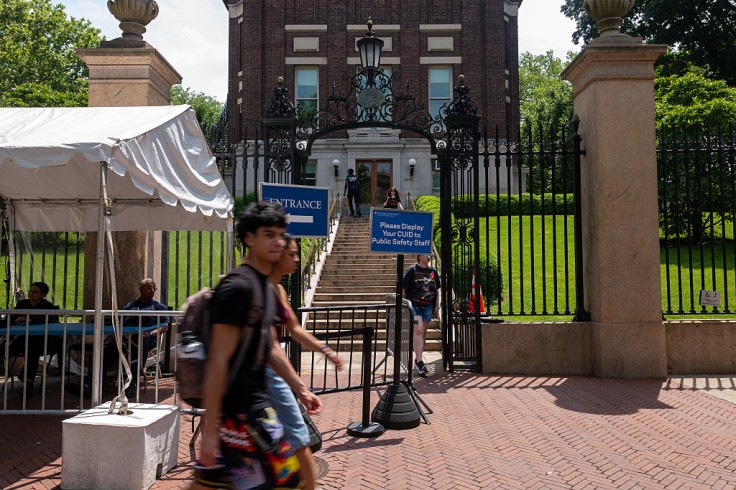
NEW YORK — A federal judge has dismissed a lawsuit filed by two labor unions representing Columbia University faculty, challenging the Trump administration's decision to cut funding and impose demands on the university's student discipline and Middle Eastern studies department. The ruling, issued Monday, marks a significant victory for the administration in its ongoing efforts to reshape higher education policies.
U.S. District Judge Mary Kay Vyskocil in Manhattan ruled that the American Association of University Professors (AAUP) and the American Federation of Teachers (AFT) lacked legal standing to sue, noting that Columbia University itself was "conspicuously absent" from the case. The lawsuit, filed in March, contested the administration's cancellation of $400 million in federal funding, which was tied to allegations that Columbia failed to address antisemitic harassment during pro-Palestinian protests on campus.
"Our democracy cannot very well function if individual judges issue extraordinary relief to every plaintiff who clamors to object to executive action," Vyskocil wrote in her 30-page ruling. "If any funds have been wrongfully withheld, such funds may be recovered at the end of a successful lawsuit by the appropriate plaintiff in an appropriate forum."
The Trump administration's actions followed months of pressure on Columbia, accusing the university of tolerating antisemitism amid campus protests over the Israel-Hamas conflict. In March, Columbia agreed to several of the administration's demands, including placing its Middle Eastern, South Asian, and African Studies department under new oversight and banning face masks to conceal identities during protests. These concessions were criticized by faculty as a capitulation of academic freedom.
The AAUP and AFT argued that the funding cuts and demands violated free speech rights and academic autonomy, alleging "severe and irreparable damage" to research, including efforts to combat Alzheimer's, ensure fetal health, and cure cancer. Despite the dismissal, both unions vowed to appeal.
"This is a disappointing ruling, but by no means the end of the fight," said AAUP President Todd Wolfson. "Ultimately, lifesaving research, basic civil liberties, and higher education in communities across the country are all on the line."
Orion Danjuma, a lawyer at Protect Democracy representing the AAUP, called the decision flawed, citing "clear errors under settled Supreme Court precedent."
Unlike Harvard University, which has filed lawsuits to restore over $3 billion in federal funding and block restrictions on international student enrollment, Columbia has not joined its faculty in challenging the cuts. Acting President Claire Shipman emphasized the importance of restoring research partnerships with the government, stating last week, "In my view, it is essential to restore our research partnership with the government, if possible. I will always advocate for conversation, as long as it is productive."
The ruling comes amid broader tensions between the Trump administration and elite universities. The administration has accused institutions like Columbia and Harvard of fostering antisemitism and "radical left" ideologies, leading to funding cuts and investigations into campus policies. Columbia's concessions, including hiring 36 special officers with arrest powers and revising anti-discrimination policies, have sparked concerns among faculty about academic independence.
Sheldon Pollock, a retired former chair of Columbia's Middle Eastern studies department, expressed dismay, stating, "Columbia faculty are utterly shocked and profoundly disappointed by the trustees' capitulation to the extortionate behavior of the federal government."
The case underscores a growing divide between universities and the Trump administration, with potential implications for academic freedom and federal funding nationwide. Both plaintiffs plan to appeal, signaling continued legal battles over the administration's higher education policies.
© 2026 University Herald, All rights reserved. Do not reproduce without permission.








